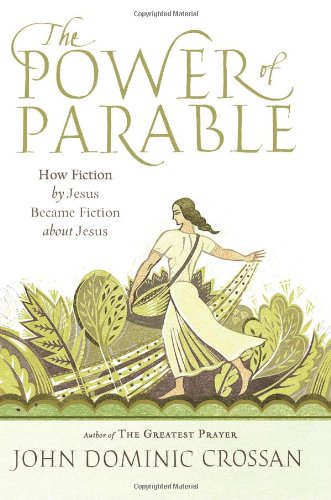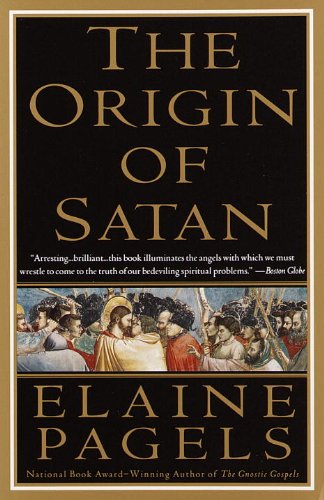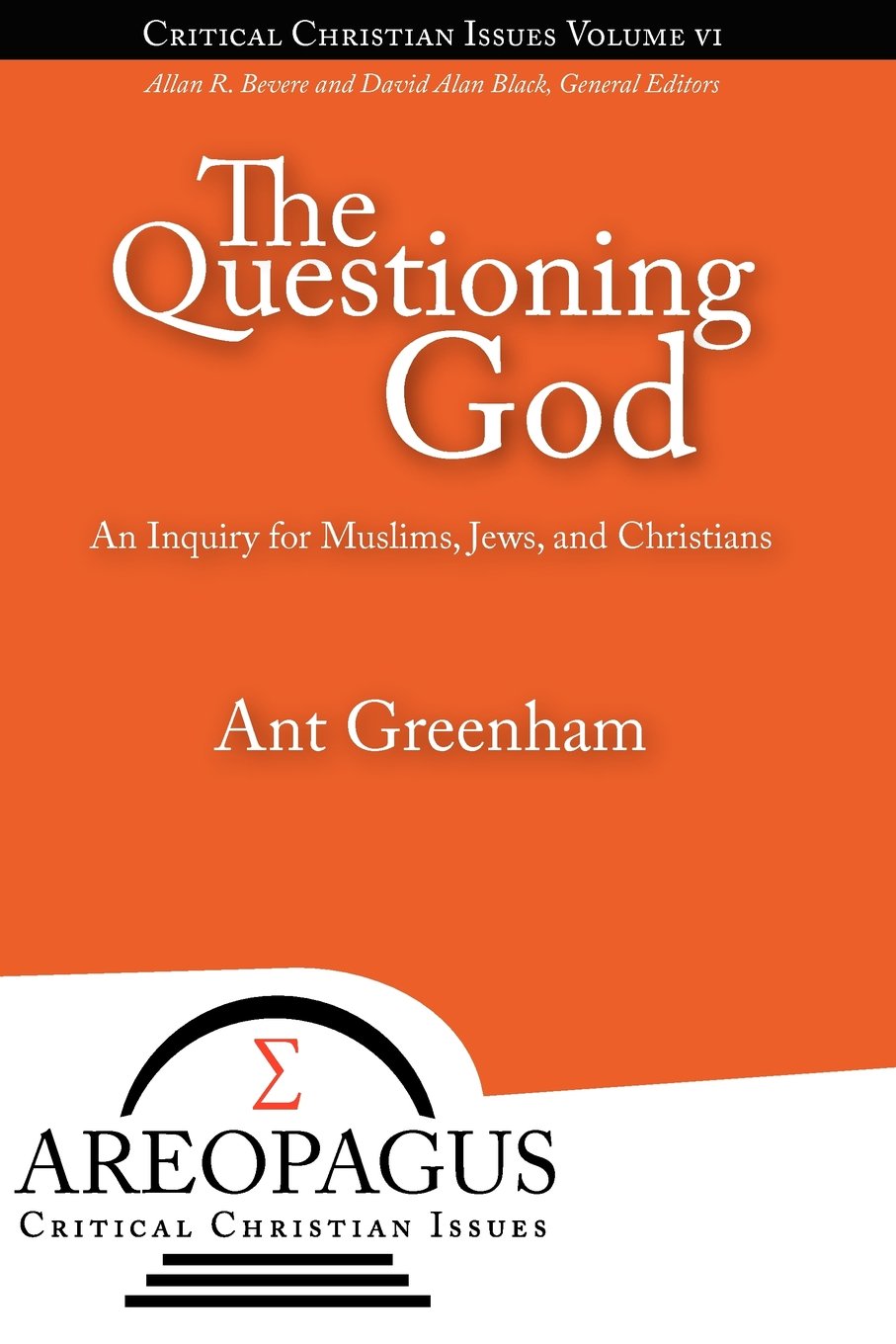Book review: The Power of Parable
by John Dominic Crossan
★★★★★
Crossan ponders, “I had observed that the parabolic stories by Jesus seemed remarkably similar to the resurrection stories about Jesus. Were the latter intended as parables just as much as the former? Had we been reading parable, presuming history, and misunderstanding both?”
In other words, are the stories of Jesus really book-length parables? Crossan presents three such parables in the Old Testament: Job, Ruth and Jonah. Ruth challenges a part of the Bible, Jonah challenges the whole of the Bible, and Job challenges the God of the Bible. But isn’t there a major difference between the Old Testament books and the Gospels? Were the characters in these stories historical, the way we think of Jesus? So Crossan presents the story of Caesar at the Rubicon as “parabolic history” to show how even historical characters can be the subject of the development of parables.
Crossan separates parables by their flavor: riddle, example, challenge, and attack parables. I found the discussion of several New Testament parables insightful, but they served only as a lead-in to the bigger topic. In part 2, Crossan takes on the four Gospels each as a whole, presenting the meaning of them as book-length parables … what they challenge, what they attack.
It is not really the historicity of the Gospels that Crossan contests, but their evangelical purpose. The undercurrent of truth, or lack thereof, is not the focus of his book; it is the way the stories are bent into parable, and what these book-length parables mean. Thought-provoking and well-written, a great read.

Revelation 21:22, What is Eschatology?
And I John saw the holy city, new Jerusalem, coming down from God out of heaven, prepared as a bride adorned for her husband.
//I write so often about “eschatology” that I often forget it’s a big, confusing word that most people write off to the world of Bible scholarship. In my upcoming book about John’s Gospel, I define eschatology straightforwardly:
The doctrine of the last or final things, as death, judgment, and the events therewith connected.
But I actually prefer this practical definition by scholar N. T. Wright:
If there is one god, and you are his one people, but you are currently suffering oppression, you must believe that the present state of affairs is temporary. Monotheism and election thus give birth to (what I call) eschatology: the belief that history is going somewhere, that something will happen through which everything will be put right.*
Our Bible abounds in eschatological thinking. Simply turn to any passage that deals with the suffering of the Jewish nation, Old Testament or New, and you find there a promise of better things to come. Wright’s observation is brilliant: eschatological thinking is the belief that history is going somewhere.
Prophets, apologists, and followers have expressed views for 3,000 years about just where history is going, but nearly all agree that something will happen to set things right. Maybe a New Jerusalem will float down from heaven and replace the old (today’s verse in Revelation). Maybe the good guys will float up to heaven and find a new city waiting there. Or, maybe we’ll figure out that our future is in our own hands, and go to work with what we have, to make it better.
Whatever our beliefs about what is to come, there is a question that we must ask ourselves. Are Christians called to participate in the inauguration of the new age, what Jesus called the Kingdom of Heaven? Is Christianity an active or a passive belief system?
Your choice.
*The Meaning of Jesus, c. 1999, p. 32
Book review: The Origin of Satan
by Elaine Pagels
★★★★
Not a new book, but since I’ve recently received a couple more to read along this topic, I dug this one out and scanned through it as a reminder.
It’s typical Pagels, opinionated and controversial, but thought-provoking. I love Pagels’ work!
You’ll read a little about the evolution of ideas regarding Satan, but this is really not the book’s focus. Her premise is that Satan evolved over time for a reason, and that reason was to demonize one’s enemies—primarily the enemies of the Christians. No, not ancient Israel; Pagels spends almost the entire book within the context of the New Testament—an appropriate focus, since in the Old Testament Satan is more of an Adversary under God’s employ. By the time of the New Testament, though, Satan has morphed into the Prince of Darkness, the leader of all that is evil in a cosmic battle against good…a battle that found the Christians caught in the middle. Satan is the natural evolution of an us-versus-them atmosphere in the arena of religion.
Like Pagels, I find the war of 70 CE, when the Temple was destroyed and Jerusalem leveled, more than just a little important to understanding the development of Christianity. (In fact, I tend to go a bit overboard on this theme in my books). But Satan isn’t allied only with the Romans; he also takes the side of the Pharisees (read: Rabbinic Judaism), Herod, and pagans everywhere. Finally, in later Christian writings, Satan manages to seduce even Christians, and the war turns against heretics.
Fun book, and a different take from what the title may make you think.

Acts 1:11, Gazing Into Heaven
Ye men of Galilee, why stand ye gazing up into heaven?
//No, I’m not going to embark on another lecture about Christians who waste precious time scanning the skies for their Lord to return. I just thought I’d point out something funny.
Remember Galileo, the astronomer who insisted that the earth rotated around the sun, rather than the sun around the earth? That didn’t go over too well with the Church, who preferred to believe that the earth is the center of the universe. Galileo and his misinformed followers, the Church insisted, spent altogether too much time themselves staring up into heaven.
So, today’s verse was quoted by a Dominican friar to discourage the use of Galileo’s telescope. Note the clever play on Galilee and Galileo.
Hebrews 11:37, Sawed in two
They were stoned; they were sawed in two; they were put to death by the sword. They went about in sheepskins and goatskins, destitute, persecuted and mistreated—
//Today’s verse talks about the treatment of the Old Testament faithful. One person, it says, was sawed in two! Any idea who this talks about?
Most scholars believe this refers to an apocryphal book titled The Martyrdom of Isaiah. The Bible says nothing about how Isaiah died, but in this account, Isaiah prophesies his own death being sawed in two, and it comes to pass.
As the story goes, a man named Belchlra accuses Isaiah of false prophecy before King Manasseh, saying:
‘Isaiah and those who are with him prophesy against Jerusalem and against the cities of Judah that they shall be laid waste and (against the children of Judah and) Benjamin also that they shall go into captivity, and also against thee, O lord the king, that thou shalt go (bound) with hooks and iron chains.’
Of course, Isaiah’s prophecy wasn’t false; it turned out to be the truth. Belchlra also said about Isaiah:
And Isaiah himself hath said: ‘I see more than Moses the prophet.’ But Moses said: ‘No man can see God and live': and Isaiah hath said: ‘I have seen God and behold I live.’ Know, therefore, O king, that he is lying.
The words of Belchilra convinced Manasseh, and …
he sent and seized Isaiah. And he sawed him asunder with a wood-saw. And when Isaiah was being sawn in sunder Balchlra stood up, accusing him, and all the false prophets stood up, laughing and rejoicing because of Isaiah.
Book review: The Questioning God
by Ant Greenham
★★★★
First, a note about what Greenham means by “the questioning God.” He doesn’t mean God wonders about the truth; he means God engages us with questions, forcing us to think for ourselves. God asks Adam and Eve, “Where are you?” He asks Abraham, “Can you number the stars?” He asks Moses, “Who has made man’s mouth?” He asks Job, “Who is this that darkens counsel by words without knowledge?”
Given that God is a questioning God, and that we are made in the image of God, Greenham encourages us to freely question as well. God would expect no less. God’s basic desire is expressed in this sentence: “I will be their God and they will be my people.” However, as individuals turn to God and become his people, it should not be a case of blind acceptance.
Greenham examines the three primary monotheistic religions, concluding that Islam discourages questioning while Judaism liberally encourages it. But there’s such a thing as questioning too much. Some questions don’t engage us with God, but dismiss him instead. The proper balance (and proper Christianity) seems to fall somewhere in the middle.
An example of how Christians should feel free to question: Consider George W. Bush’s invasion of Iraq. Christian leaders everywhere opposed Bush’s invasion plans, but their voices were drowned in a tide of patriotic endorsement. Few considered the nearly one million Christians living in Iraq. Nobody asked them what we should do. Consequently, one of the greatest catastrophes following the 2003 invasion was the loss of over half of that country’s Christian population.
Self-questioning (removing the “logs” from our eyes) is “penetrating and devastating. It is no less demanding than questioning the basis of Islam for a Muslim, or considering Jesus as Messiah for a Jew.” But Greenham does have his boundaries! It’s apparently fine for Muslims to doubt Islam, and for Jews to contemplate the possibility of Jesus as Messiah, but Greenham stops short of encouraging us to question the Christian Bible. I believe his stance is summed up by this quote:
“I tell people I teach in church and seminary setting not to believe me because I have a Ph.D., but only if they’re convinced that my teaching is biblical.”

Job 1:18-19, Job Repulses His Children
While he was still speaking, yet another messenger came and said, “Your sons and daughters were feasting and drinking wine at the oldest brother’s house, when suddenly a mighty wind swept in from the desert and struck the four corners of the house. It collapsed on them and they are dead, and I am the only one who has escaped to tell you!”
//You know the story, how Satan, with the permission of God, persecuted Job. In this verse, a messenger brings word of the death of Job’s children.
But then, much later, Job’s children are discovered alive. Or at least this verse hints they still live:
Job 19:17, My breath is offensive to my wife, And I am repulsive to the children of my own body (NKJV).
So, did his children miraculously survive? Not all translations agree. Some say Job repulsed not his own children, but the children of his mother…that is, his brothers. The Septuagint (the Greek translation of the Hebrew Old Testament) also discovered the incongruence of this story and tried to fix it, naming the children sons of Job’s concubines.
I guess we’ll never know who felt repulsed.
John 20:14-15, Easter and the Garden Tomb
And when she had thus said, she turned herself back, and saw Jesus standing, and knew not that it was Jesus. Jesus saith unto her, Woman, why weepest thou? whom seekest thou? She, supposing him to be the gardener, saith unto him, Sir, if thou have borne him hence, tell me where thou hast laid him, and I will take him away.
//This is it, guys and gals. The empty tomb is the reason there are over 2 billion Christians in the world. Something very special happened on this day.
John’s Gospel alone indicates that the tomb was in a garden. This is an important theological note: John begins and ends his Gospel with the Genesis story. Mary spies Jesus (whom we now understand, after twenty chapters, is God) and thinks him to be the gardener. Here stands God, once again tending his garden, like in the days of Eden. God has come back, and the world begins anew, in the same manner it started, with a new Eden.
The human Christ is often portrayed as the second Adam, the first of the new beginning. Perhaps Paul was the first to note this connection: For as in Adam all die, so in Christ all will be made alive.—1 Corinthians 15:22. Augustine compared the opening of the Lord’s side on the cross to the opening of Adam’s side to create his “bride,” the body of his believers. It’s impossible to overstate the impact of the empty tomb, but perhaps Paul says it best:
Behold, all things are become new. –2 Corinthians 5:17
Isaiah 40:1, Second Isaiah
Comfort ye, comfort ye my people, saith your God.
//The book of Isaiah is made up of two parts: Chapters 1-39 prophesy doom upon Judah and upon any nation which opposes God. Then, chapter 40 begins a new theme, opening with today’s verse. The second half of Isaiah promises a renewed nation of Israel where God will again dwell with his people, a beautiful and glorious dream of a new kingdom.
Scholars are nearly unanimous in asserting that “Second Isaiah” was written by another author a couple hundred years later. Perhaps there were two additional authors; evidence seems to point to a “third Isaiah” as well. These later writings were then combined with the “authentic” Isaiah.
Why would anyone do this? Were these later authors trying to be deceptive, passing their additions off as original?
Probably not. It simply has to do with the size of the scrolls the stories were recorded on. A papyrus scroll, made from an Egyptian plant, could be about 35 feet long, rolled up for ease of transport.
A quick glance at the writings of the prophets will indicate that they fall neatly into four sections, all about the size of a single scroll:
[1] Jeremiah
[2] Ezekiel
[3] The twelve minor prophets
[4] The books of Isaiah
No deception involved; just convenience. The writings were combined where they would fit on a single scroll. In time, the books of Isaiah came to be considered a single document.
Got an opinion? 0 commentsBook review: Dancing in the Shadows of Love
by Judy Croome
★★★★★
It never breaks. The haunting tone of this book, with its aura of simmering emotion, never breaks until the final word. Ten pages into the book, I was already flipping through it trying to find a picture of the author. Who writes like this? Who names their main character Lulu?
This is about three ordinary-but-extraordinary women and their struggle to ride the waves of life. It’s about love, betrayal, lust, trust, and learning to live again. So, yeah, it’s about God.
Dancing in the shadows of love. This one kept me uncomfortable the whole time, wishing the three of them would just step out of the shadows into the light. It’s not that the plot is terribly captivating, it’s just that the words are arranged so … artfully? Grippingly? Hauntingly? Now that I’m finished (and after a sleepless night) I confess Croome is a fascinating author, and I’m terrified of the day she hands me another book to review. I know I won’t be able to turn it down.
But what is her book doing on my religion blog? Well, the problem is, an explanation would also be a spoiler. Its value is spiritual, even if its religion is foreign. But don’t worry, her Spirit King and his mysterious representative will overlay nicely atop whatever beliefs you espouse, if you do just a little stretching here and there.
Note to Ms. Croome: Page 165 still holds me spellbound. And I’m a guy.
















 354 Circles
354 Circles
 603 Goodreads Friends & Fans
603 Goodreads Friends & Fans

 Hello! I'm an author, historical Jesus scholar, book reviewer, and liberal Christian, which means I appreciate and attempt to exercise the humanitarian teachings of Jesus without getting hung up on any particular supernatural or religious beliefs.
The Bible is a magnificent book that has inspired and spiritually fed generations for thousands of years, and each new century seems to bring a deeper understanding of life’s purpose. This is true of not only Christianity; through the years, our age-old religions are slowly transforming from superstitious rituals into humanitarian philosophies. In short, we are growing up, and I am thrilled to be riding the wave.
I avidly read all thought-provoking religion titles. New authors: I'd love to read and review your book!
Hello! I'm an author, historical Jesus scholar, book reviewer, and liberal Christian, which means I appreciate and attempt to exercise the humanitarian teachings of Jesus without getting hung up on any particular supernatural or religious beliefs.
The Bible is a magnificent book that has inspired and spiritually fed generations for thousands of years, and each new century seems to bring a deeper understanding of life’s purpose. This is true of not only Christianity; through the years, our age-old religions are slowly transforming from superstitious rituals into humanitarian philosophies. In short, we are growing up, and I am thrilled to be riding the wave.
I avidly read all thought-provoking religion titles. New authors: I'd love to read and review your book!
 Hi! While Lee writes the articles and reviews the books, I edit, organize, and maintain the blog. The views expressed here are Lee's but I'm his biggest supporter! :-)
Hi! While Lee writes the articles and reviews the books, I edit, organize, and maintain the blog. The views expressed here are Lee's but I'm his biggest supporter! :-)
Connect With Me!